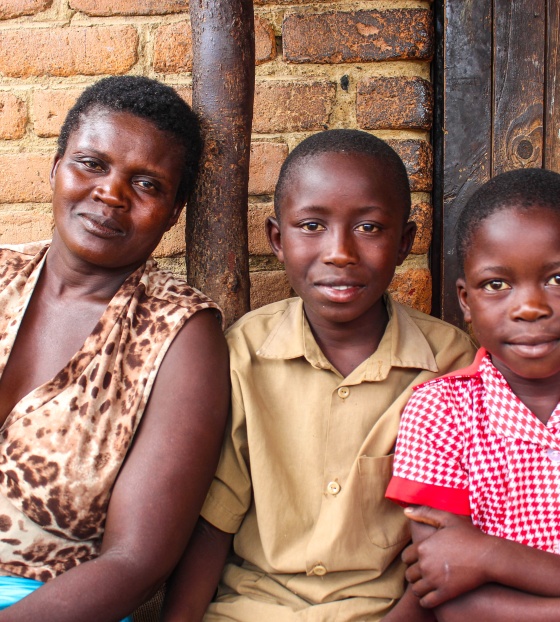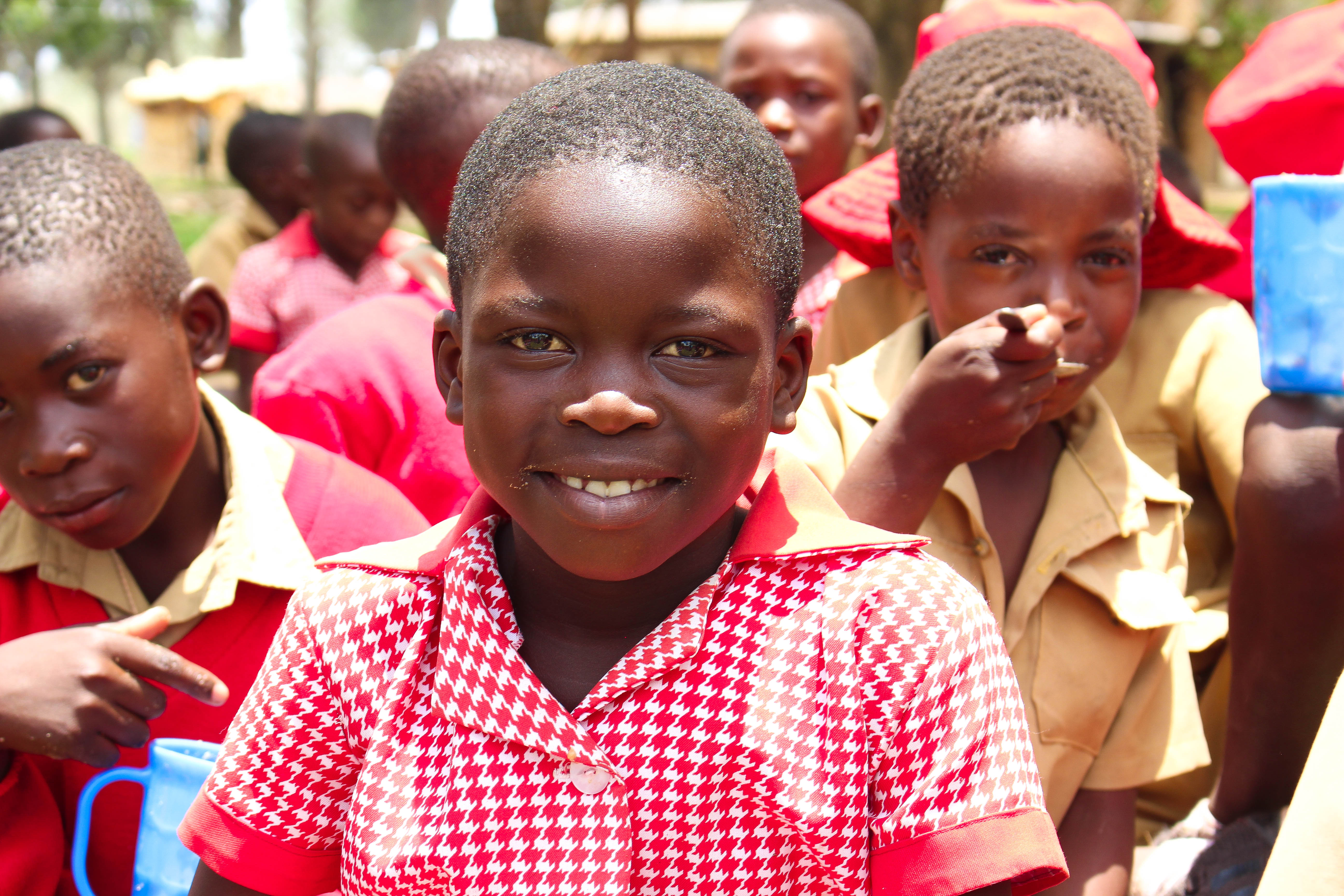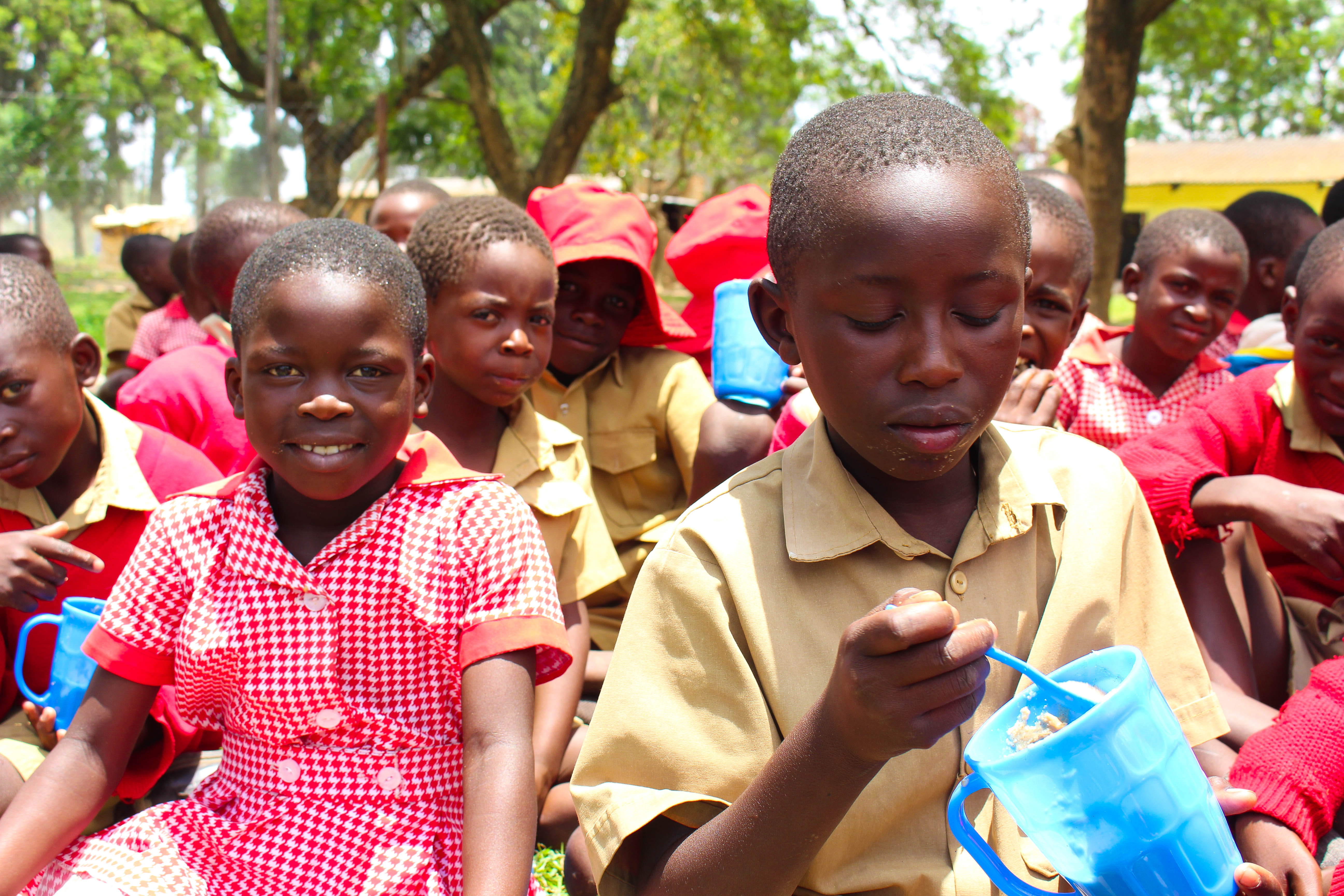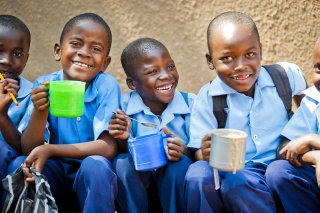

Breaking the cycle of generational poverty in Zimbabwe
Having had to drop out of school when her own parents passed away, Muchaneta is determined that her children, Sean and Chantelle, will finish their education.
On a recent trip to Zimbabwe, we met a family grieving the loss of a husband and father. The weight of their situation and the overwhelming hunger they feel is etched on the faces of mother Muchaneta and her children Sean and Chantelle. Having had to drop out of school when her parents passed away, Muchaneta is determined her own children will finish their education.
The town of Epworth is in the south-east of Zimbabwe, about 12 kilometres from the capital Harare. As we travel there, our colleague Peter tells us a bit about the place we’ll be visiting: “It started as an informal settlement in the early 1980s, soon after independence, and it’s now really densely populated.
“The government has promised to formalise things, but for now, its official status remains as an illegal settlement. As a result, access to essential services is extremely limited; there’s no water and large areas have no electricity.”
Our colleagues go on to talk about reports of girls as young as 12 being forced into prostitution, just to survive. It is a high-risk area, HIV and Aids are prevalent and most people are not formally employed, with many travelling to Harare city centre to try selling what they can to make ends meet.
It's a difficult place to grow up, but that is the reality facing the children who call Epworth home. And we can see there are many of them, running between the seemingly chaotic mix of buildings and structures, navigating paths and informal streets, avoiding bumping into people and vehicles as they jump and chase each other over the uneven ground.
High food insecurity and its impact on the most vulnerable
Mary’s Meals first brought its school feeding programme into Zimbabwe in 2018 in response to high levels of food insecurity and low school enrolments. Then, as the Covid-19 pandemic brought communities to breaking point under lockdown restrictions in 2020, we launched a new partnership with Mavambo Orphan Care to support around 6,000 children from Epworth and the surrounding areas with much-needed home-based community feeding (as schools were closed). Food was provided to families with children who were HIV-positive and who had lost all sources of income as the restrictions made travel for work or to the markets impossible. This reliable source of nutrition was vital to those children for their antiretroviral (ARV) medication to work properly.
Across the country, our programme has continued to grow and we’re now reaching more than 125,000 schoolchildren in Zimbabwe, through our work with Mavambo and another local partner, ORAP.
More than 700 of them go to Danckwerts Primary School, where the teacher in charge is Ms Alice Tawarinda. On a hot and dusty Friday morning we stopped to listen to a conversation between Alice and Frances Zamurira, Mavambo’s School Feeding Manager. They discussed the challenges being faced by the communities they serve, and the country as a whole.
“Ah, there is real hunger in their homes here. Even the country is now running low, in terms of ‘mealie-meal’ (a staple made from ground maize) and other commodities. It is now becoming very expensive.
“Sometimes they (the children) will come without anything, nothing in their lunchbox and you can see they start sleeping.
“When they come to school and there is hunger there, they are not able to concentrate, they will sleep in class, they will feel weak. Some will cry, especially the young ones. They will worry, they are hungry.”

A bereaved family with few places left to turn
One of the mothers who struggles to provide anything for her children to eat is Muchaneta. Her name translates as ‘you will be tired’ and sadly, her daily challenges make it more than apt. Muchaneta relies on intermittent farming jobs to support her family, but it’s a struggle that became even harder when her husband passed away. The grief of the family is still clear on their faces when they talk about this loss, and tears well in their eyes as they explain what this has meant for the family.
“It’s not as good in Zimbabwe now, because there is hunger and poverty.
“Because of the economic situation, it’s now hard to find employment. People used to work in industries, but now there are no industries, so now we rely on working on farms here but we get so little. It’s hard for me to fend for the children and to look after myself.
“After I became a widow, it’s now hard for me to look after the children. Especially when it comes to looking for food, for school fees and even clothing for the children. Those are the challenges now.”
Recent pressures may have made the economic situation worse, but these are issues that have plagued Muchaneta her whole life. She attended school until Grade 5, when her own parents passed away.
“I was comfortable with all subjects in primary school. I was also a netball player and enjoyed running long distances and music, I was in the choir.”
Her time at school was cut short, but she wants a different future for her own children. The provision of Mary’s Meals in school is helping make that change possible.
“I hope that by going to school, the children are going to be successful in life, they will reach their goals, and maybe improve their lives.
“I welcome the programme and I appreciate what it has done for my family and for the community, my children now say they want to go to school, they are always saying they enjoy their lessons and ‘we will get our porridge’.
“Since the introduction of the porridge, I have never had a problem with the children’s health – they have never complained, so it’s really helping with the children. So, I hope that the programme continues, and I pray for that.”
Her children, Sean and Chantelle sit quietly alongside their mother as she speaks. They watch her protectively, and it hasn’t gone unnoticed.
“The children are well behaved, maybe because they are orphans and they think if they do anything bad – they will hurt their mother. They are good children.”
Alice Tawarinda sees it too, and she explains that the fears and anxieties of parents are reflected by the children; they are not hidden from the burden of fear about where the next meal might come from.
“I think now it is a common thing in most homes. Parents are lamenting over the hunger, lamenting over the other difficulties they are facing, in front of children. Children know their parents are suffering, they know their parents are struggling to make ends meet. So, as we see from Sean and Chantelle, they know what their mother is going through. And they are also thinking, ‘if we don’t get anything to eat, what are we going to do, what is our mother going to do?’ I think it is now a common thing in the homes.”
It's impossible to know how Sean and Chantelle’s relationship with their mother and with each other has been changed by the grief of losing their father, but they share a close bond and quiet protectiveness for each other. Muchaneta says they are always looking after each other and caring for one another.
“We are the same blood,” says Sean, “I care for my sister, if I see anyone trying to harm her, it really affects me,” he says wiping away tears.
Chantelle agrees, “Sean is always protecting me and teaching me and helping me with homework.”

Food changes the story
While the siblings clearly draw strength from each other, their bond alone won’t sustain them and the hunger they face takes its toll. At this point in the morning, neither have eaten and both describe feeling hungry, “I lose strength, I feel weak and I just can’t go on,” Sean explains, “but I am looking forward to having a full stomach and after that we can go back [into class] and learn again.”
Sean and Chantelle hold hands as they make their way back to school, but their shoulders are slumped as if the weight of the world is on them, and perhaps it is. The hunger they face has sapped them of all energy.
Sean returns to class and sits quietly, perched on the edge of a bench by the doorway of the crowded classroom. As the bell rings we lose sight of him, in the throng of other children rushing for the schoolyard. The reason for the excitement becomes clear; two women, dressed in blue aprons, have finished preparing huge pots of porridge and it’s time for it to be served. The youngest children are served first, which means it’s a while before Chantelle and Sean get to the front of the queue. As they find a spot in the crowded field to eat their lunch, we begin to see the immediate impact of the meal. They visibly relax, and start to smile more, they start to tease each other and talk to the other children sitting nearby.
The same change we see in Sean and Chantelle is visible in those around them too. Across the school grounds the noise is increasing as the same children who eagerly joined the Mary’s Meals queue are now running and playing and we hear the excited shouts of games all around us.
Mary’s Meals won’t solve all the problems Muchaneta and her family face – it can’t bring the children’s father back or curb crippling inflation in the country – but it can ease the burden families are facing in providing regular meals for their children. It can allow hope to shine through the days that might otherwise feel dark and ensure it’s easier to keep going with education than it would be if there were no meals being served in school, and it can lift up the spirits and the minds of children to look towards a brighter future.
Learn more about the work that Mary's Meals is doing in Zimbabwe at the link below.
